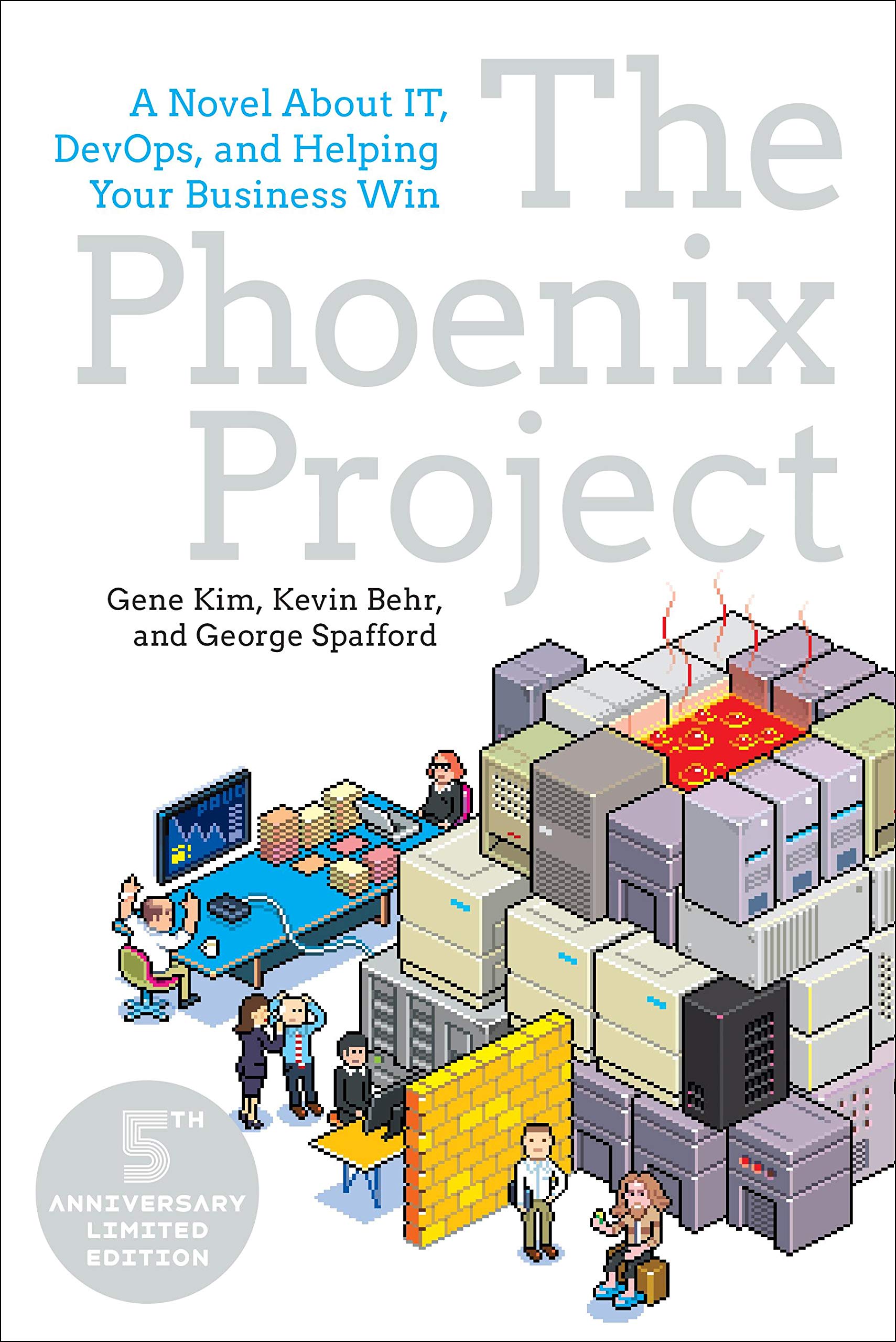I recently finished reading “The Phoenix Project” written by Gene Kim, Kevin Bahr, and George Spafford. This book is a must read for anyone trying to wrap their heads around the buzzword DevOps.
The story follows a man named Bill who works for a company called Parts Unlimited (basically just insert any generic Fortune 500 here). He manages a department in his company’s IT apparatus and likes what he does. One day, without warning, he is unexpectedly promoted to Vice President of IT Operations. Long story short, Parts Unlimited is having some serious financial problems and the future success of the company rests on the rollout of a special initiative to establish an effective e-commerce presence, dubbed The Phoenix Project. Bill is tasked with the successful rollout of Phoenix, as well as putting out almost daily, technical fires.
Along the way Bill meets Erik (a mysterious member of the board) who mentors him on the right way to manage the development and operations processes of IT.
Along the way Erik enlightens Bill with the 3 ways. These are:
The Principles of Flow
- Making work visible
- Limiting work in progress (WIP)
- Reducing batch sizes and the number of handoffs
- Continuous identification and evaluation of constraints
- Eliminating hardships of daily work
The Principles of Feedback
- Seeing Problems as they occur
- Swarming and solving problems with new knowledge
- Pushing quality closer to the source
- Continually optimizing for downstream work centers
The Principles of Continual Learning and Experimentation
- Enabling high trust and
- Accepting that failures will always occur when a system is complex
- Making it acceptable to talk about problems to encourage a safe system of work
- Making the improvement of daily work part of your institution
- Converting local learnings into global learning to be used by the entire organization
- The third way is tied in fundamentally to the first two ways
When these three ways are put in practice, you are well on your way to having successfully implemented DevOps into your company or organization. This will allow for more effective use of limited resources, higher throughput, and better quality of product from the very beginning.
The Principles of Flow help to streamline processses and remove the extra fluff that can build up and slow down the workflow. The Principles of Feedback work to provide valuable feedback on how the principles of flow are working and can catch problems quickly and efficiently. The Principles of Continual Learning and Experimentation help to implement the feedback recieved into the current and future processes and refine them.
While DevOps is sometimes seen as one of those technology buzzwords, it is a practice that provides value to any company or organization that works with processes and production (both physical and digital).
Find the book here: The Phoenix Project
